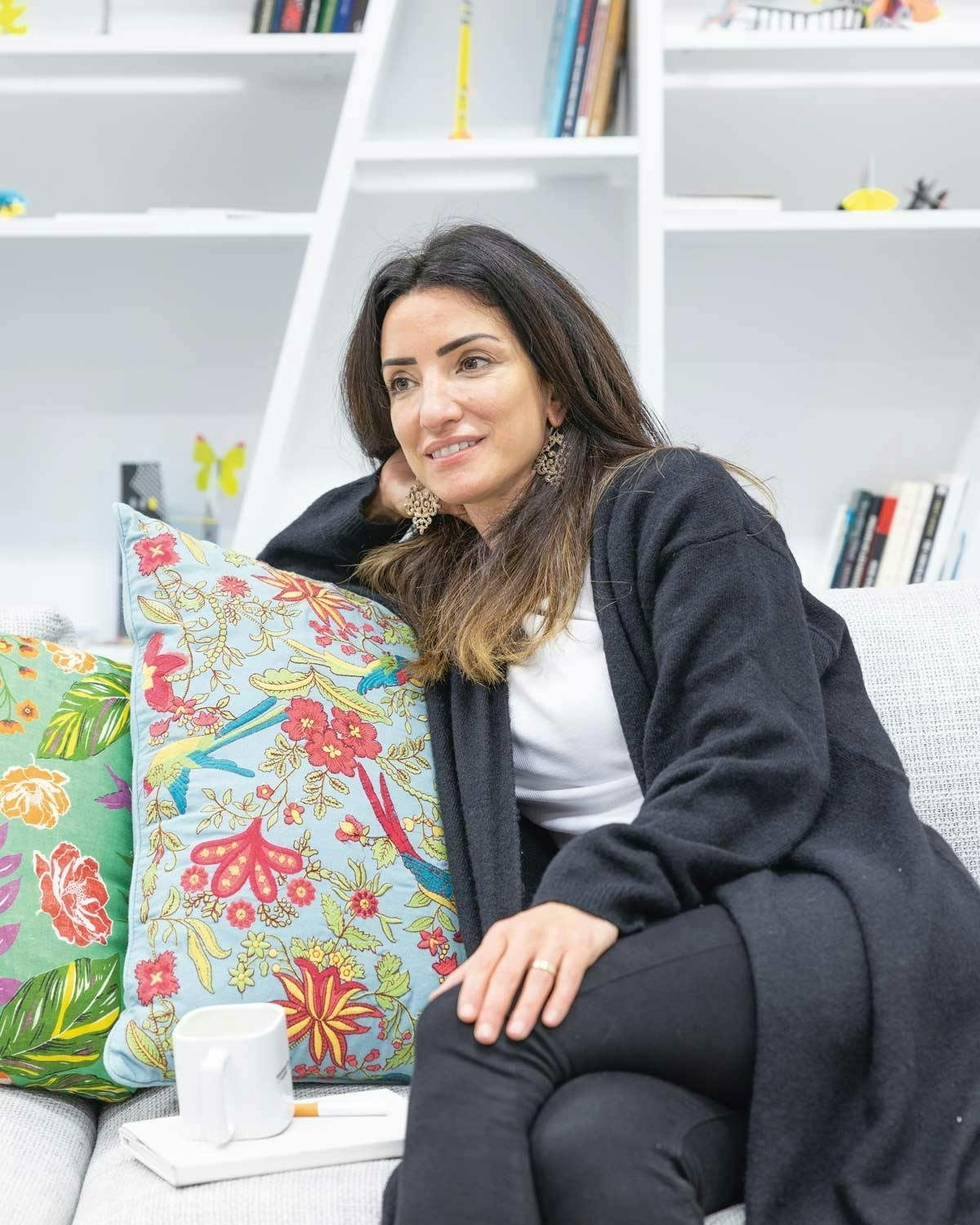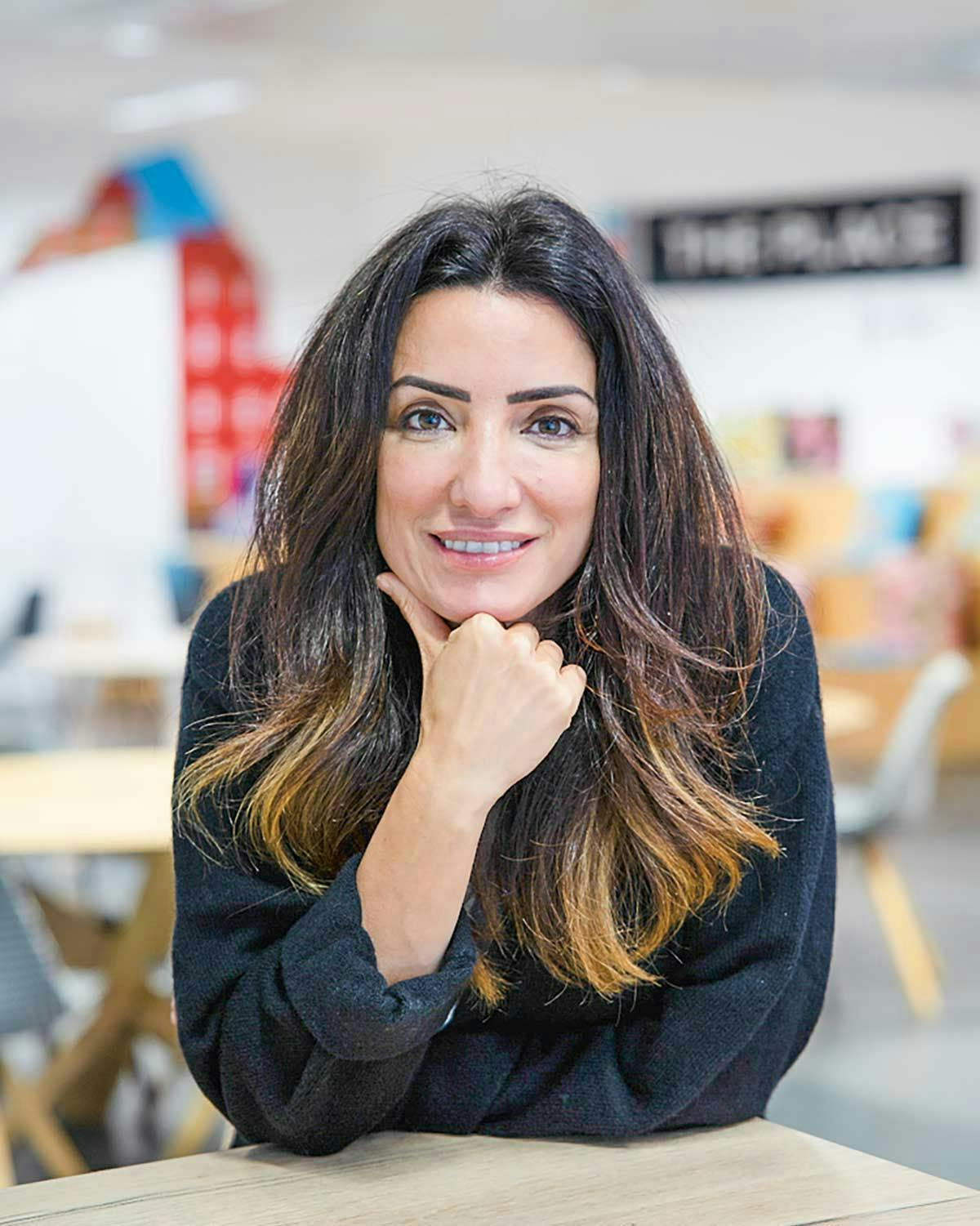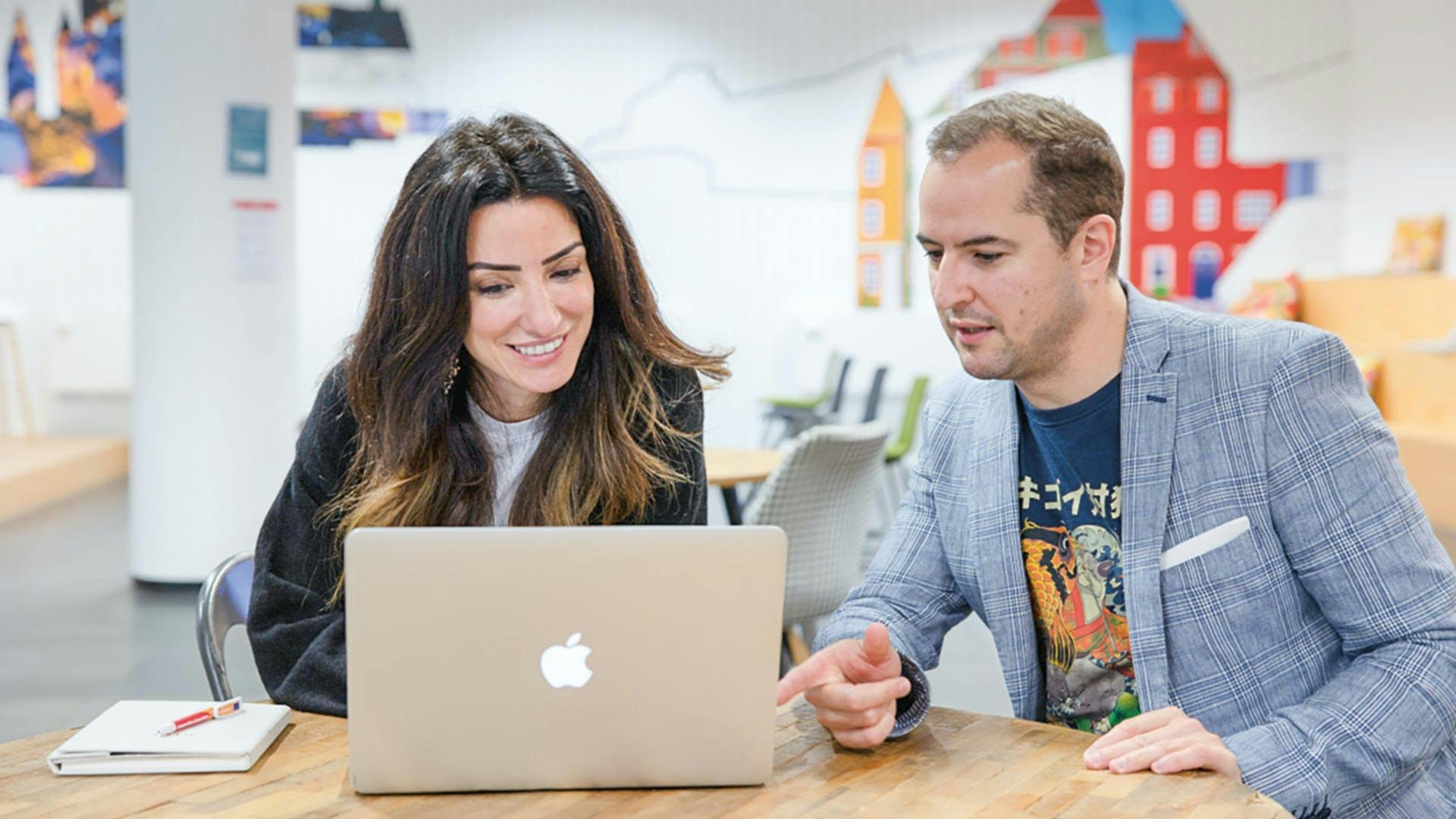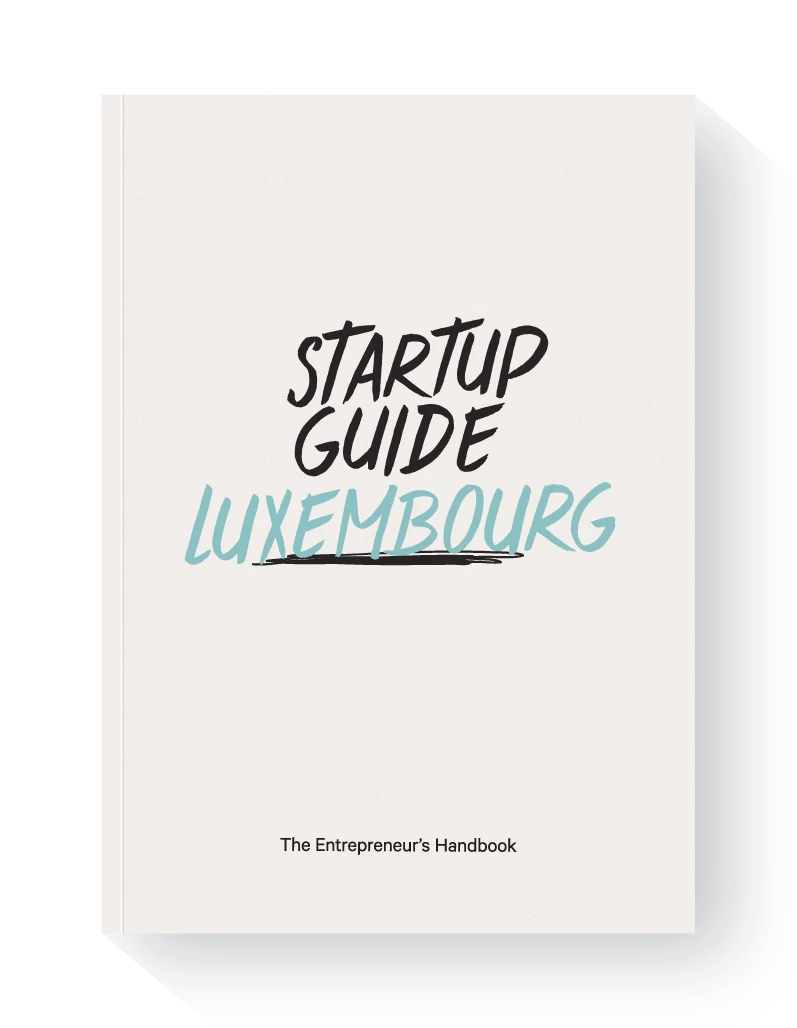Social entrepreneur Caroline Assaf shares her journey of founding CoCo World
riginally from Lebanon, Caroline Assaf is nothing short of a globetrotter. She has lived abroad for more than two decades, with stints in Dubai, France, Australia and Canada before settling in Luxembourg.
Caroline has multisectoral management experience in the corporate, nonprofit and public sectors, but in 2019, she founded CoCo World, a peer-learning platform and social enterprise that aims to nurture a culture of communication and connection among young people. Working with Luxembourg’s Ministry of Education, the platform provides young people with the opportunity to engage with topics of social importance and build collaborative networks.
Caroline shares her journey of founding CoCo World and some advice for entrepreneurs starting up in Luxembourg.
How did you make the pivot towards becoming a social entrepreneur?
When I moved to Canada in 2011, I decided to make a career shift. I started an MA in Sustainable Development at the Harvard Extension School and I quickly realized that sustainability is a huge field. It took me a bit of time to work out where to make an impact.
Where I come from, Lebanon, education was at the heart of community support and it was the ticket for me to change my life. I realized that if I wanted to make a meaningful impact, I needed to start in the education sector and with young people, empowering them to build the confidence and competence to communicate and connect with their communities, share knowledge and broaden perspectives. This is where the whole concept for CoCo World originated.
We want young people to take their time to educate themselves about topics that could define their future, whether that’s their personal future or their future as a generation.
So what does that look like in practice today?
Our first product, which we launched in February 2020, is a peer learning system that allows young people to engage with different social impact topics. The first topic we wanted to explore was the transition from education to employment. We developed a methodology in which each person can go on the platform, follow a self-designed curriculum and then share their thoughts and reflections in a vlog with their peers. This way, whether someone’s an introvert or an extrovert, they have the chance to have an equal voice.
The second product, which is probably the signature product, is a peer studying platform that uses lots of different tools, including AI, to enable young people to create a sense of
community. They can reach out to each other and study with one another either in the form of peer tutoring, group study or one-on-one studies.
Part of our growth is to experiment and learn. As our audience evolves, our tools will evolve. For us, the most important thing is to make sure that everything we’re designing is actually inspired and influenced by our mission, which is to create the best conditions possible for people to feel safe, confident and competent enough to share knowledge. While the content can vary, it’s these conditions that matter, and we’re tracking and evaluating the interactions on the platforms along the way.

Caroline Assaf. Photo: Vincent Remy
There are plenty of digital platforms out there demanding the attention of young people. Do you feel like CoCo World has to compete for that attention?
I don’t necessarily think we’re asking for attention on the platform. We’re asking for attention on the topics. We want young people to take their time to educate themselves about topics that could define their future, whether that’s their personal future or their future as a generation. Maybe these topics aren’t usually on the agenda for them because their circumstances don’t expose them to it. They could be too busy focusing on academic subjects at school or perhaps issues like emotional intelligence or climate change aren’t discussed at home.
So we’re not fighting for their attention overall. We want to bring to their attention the key issues that will define their future and we want to provide them with the confidence and competence to have an opinion about them.
[Read more: Luxembourg's strong ecosystem helped Antoine Hron found Klin]
So what advice would you give to young entrepreneurs starting out? What do you wish someone had told you?
Everyone is telling you to be an entrepreneur, but I think sometimes people underestimate your lived context. People will tell you to follow your passion, which is great, but you need to be pragmatic as well and ask whether your circumstances allow you to follow your passion. It’s easy for us to talk but there are people who can afford to do it and those who cannot afford to do it. Sometimes your circumstances mean you just need to take a steady job.
What I say to people is that it’s secondary whether you can afford to be an entrepreneur or not. What matters is that you adopt an entrepreneurial mindset in your everyday life. Whether you’re an employee at a big company or facing issues in your personal life, you can be a major problem solver with this mindset. When you decide to start your own company, this will carry through.
Let’s not set entrepreneurs up as gods. An entrepreneur is just someone who is willing to take a risk and maybe their circumstances allow them to take these risks. Sometimes people are in situations where they cannot do this, where they have a family to support or really need the income from a day job. If you’re in a country where you can’t get government support to pursue an initiative, you can’t do it either.
But no matter what your circumstances or background, nobody can stop you from adopting an entrepreneurial mindset. That’s what matters most because you can succeed when you’re ready. You need a mindset that is based on growth, on your curiosity to always grow and learn from your failures. You can call it what you want but you need to be willing to learn to grow and evolve. I think if each one of us does this, the human race will reach a better place.
No matter what your circumstances or background, nobody can stop you from adopting an entrepreneurial mindset.
What are some of your key work habits? How do you stay self-disciplined?
I wouldn’t necessarily say I have thought a lot about discipline. I love what I’m doing. I don’t really feel like I’m forcing myself to do anything. Back when I was working for a corporate company in high positions, I needed discipline because I needed to prove to senior people that I was good at what I was doing. Today I don’t have to prove anything to anyone. Most of the time, I’m excited to come to the office because I want to learn more and I want to see how close I can get to the goals I have set for myself. There are parts of what I do that I’m good at; there are areas where I need to develop.
It’s not like I’m creating a structure for myself. I’m going with the flow with this business and with this idea that human capital is the most untapped resource in the world. I believe in it. People around us have so much knowledge and experience. I just want to optimize this capital so a new generation can begin sharing this knowledge and automatically raise their collective intelligence. If I succeed through CoCo World then fine, fantastic. If I don’t, then I know what I’m going to keep doing because I believe in the power of knowledge.

Why Luxembourg?
I didn’t choose Luxembourg. I came for personal reasons. But I realized Luxembourg is a hidden gem. The fabric of the people and society in Luxembourg is very multicultural and cosmopolitan, but at the same time it has maybe the density and the lifestyle of a more remote area. So it has the best of both worlds, and it’s so close to everything else in Europe that if you want a big city you can go to Brussels or Germany really quickly.
Sometimes when you think about entrepreneurship and success, you think about people, product and time, but we underestimate the importance of place. If I wasn’t in Luxembourg, maybe I wouldn’t be where I am today. My business is in companies and organizations that are linked to government institutions. Being able to access ministers and people in government institutions is so difficult in other places but in Luxembourg, it’s a very agile environment, and reaching out to decision makers is not as complicated as in other countries.
I was able to meet a representative from the Ministry of Education and secure funding of half a million euros. I set up the company in June 2019, we got the funding approved in October and we got the money in 2020. It’s been a very positive experience so far, and we’ve grown the team.
[Read also: Starting a business in Luxembourg: What you need to know]
A version of this article is included inStartup Guide Luxembourg Vol.2, alongside more founder stories and expert insights.
Order your copy now!
Photos by ©Vincent Remy
Written by Ciaran Daly
Repackaged by Anastasia Ilcov

